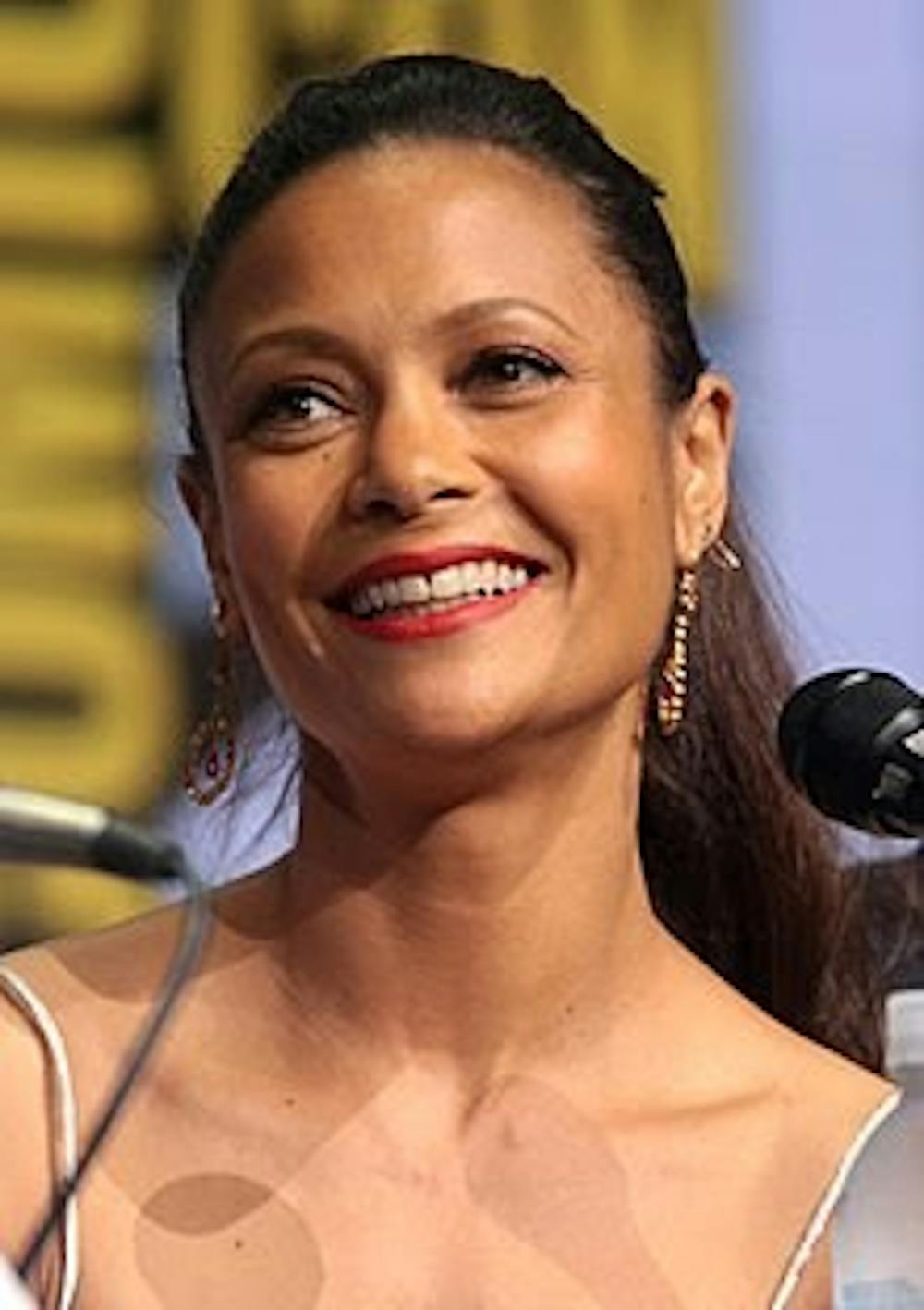The Emmys in 2018 had to be different. After a tumultuous year for the entertainment industry, television’s most prestigious awards show had to confront the toxic and systemic issues brought to a boiling point in the past few months.
Accordingly, this year’s hosts Colin Jost and Michael Che had no choice but to be self-deprecating. And while their performance throughout the night was never as flashy or polarizing as the comedically outsized Stephen Colbert from last year’s Emmys — for better or worse — this year’s hosts brought the casual style of “Saturday Night Live” to the Academy’s prestigious stage.
“This year the audience is allowed to drink in their seats,” smiled Jost in the opening monologue to light chuckles, before adding, “because the one thing Hollywood needs right now is people losing their inhibitions at a work function” to louder, self-conscious laughter from the audience.
Throughout the show, both hosts kept #MeToo in the conversation with occasional humorous commentary — they advised audience members to pat themselves on the back but refrain from touching their neighbors. Che noted the ongoing Hollywood conversations about race and gender.
“The Handmaid’s Tale takes place in an imaginary future where an entire group of people are forced to work and make babies against their will,” Che said. “It’s what black people call history.”
Later on, Kate McKinnon and Kenan Thompson led an amusing musical performance where they simultaneously congratulated this year’s awards ceremony on being the most diverse in its history whilst rightfully pointing out how far there is to go. “We solved it! We’ve gotten with the times!” they sang in faux self-congratulatory fashion as they were joined by a dancing group of diverse performers on stage.
The sheer volume of NBC talent in this year’s ceremony resulted in sketch performances worthy of late night. The abundance of comedians helped the show — the Television Academy sorely needed to have a little fun at its own expense.
The self-deprecation did not stop at diversity issues. Despite being broadcast on NBC, this year’s hosts were not afraid to call out Netflix’s increasing dominance amidst a landscape of increasingly out of touch networks.
“Our network, NBC, has the most nominations of any broadcast network. Which is kind of like being the sexiest person on life-support,” said Che.
It is hard to ignore the elephant in the room when that elephant dominates the awards. Netflix’s 700 original shows garnered 112 nominations, finally beating out HBO for most nominations. HBO earned 108 nominations from a pool of far less overall content. The battle of quantity versus quality rages on, but this year the Emmys proved that both can lead to tremendous success.
The evening yielded some notable and well-deserved wins. Amazon’s “The Marvelous Mrs. Maisel”, a series inspired from the true story of a female comedian struggling to succeed in a testosterone-dominated profession, won Outstanding Comedy Series and star Rachel Brosnahan received Outstanding Lead Actress in a Comedy Series in a moment that felt both timely and justified. The director Glenn Weiss surprised the crowd with a live proposal to his fiancé Jan Svendsen, calling her the “sunshine” of his life.
Unfortunately, not every win felt like a surprising triumph. The crowd-pleasing theme of this year’s Emmys persisted with a predictable win for HBO’s recent, also crowd-pleasing season of “Game of Thrones” as Outstanding Drama Series. A rocky and polarizing season that many felt was unworthy of prior greatness did not deter the Television Academy from making a safe and boring decision.
SNL talent was featured not only amongst the organizers but the winners as well, with Bill Hader receiving Best Comedy Actor for his performance as a hitman-turned-actor in the wonderfully creative “Barry.” Netflix’s “The Crown” soaked up Outstanding Lead Actress in a Drama Series with Claire Foy getting a win after only being nominated for the same award last year. “The Americans” and its male star Matthew Rhys finally got their due with an award for Outstanding Lead Actor in a Drama Series.
Biracial actress Thandie Newton received Outstanding Supporting Actress in a Drama Series for her role in “Westworld” with a call for inspiration to “brown little girls everywhere.” Few would disagree with John Oliver’s gimmicky yet genius “Last Week Tonight” winning Outstanding Variety Talk Series, and Oliver while giving thanks made humorous reference to the night’s earlier surprise proposal: “I’d like to thank Glenn Weiss’ fiancée for saying yes, otherwise this could have been a very different evening.”
All of this made for a largely entertaining ceremony, if not a funny but slightly-safe subversion of expectations. Despite making broad references to the #MeToo movement, the hosts refrained from naming names. And despite the self-deprecating gags about the failure of Hollywood to promote diversity, Donald Glover’s acclaimed racial comedy “Atlanta” won only two awards in the Creative Arts categories — and lost out on its five other nominations in the main awards.
The golden age of television is still here, and this year’s Emmys were able to effectively capitalize on the silver linings. To say “We Solved It!” would be putting the cart before the horse, but with so much novel talent and increasing diversity to legitimately celebrate, it would be hard not to come out of this year’s Emmys feeling optimistic.





